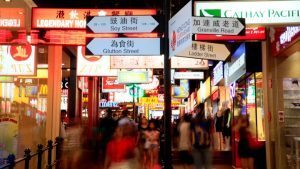Kwami Anthony Appiah in The Atlantic:

The movie Crazy Rich Asians, adapted from Kevin Kwan’s bestselling novel, has been widely celebrated in the United States as a big step toward diversity: It’s a Hollywood movie with an Asian cast. But in Singapore, some people are complaining that the film doesn’t capture their country’s actual diversity. That’s even granting the film’s focus on people who are crazy rich (not—to avoid confusion—crazy and rich, though some are both). “The focus is specifically on characters and faces of East Asian descent, which plays into issues of racism and colorism that still exist, not only in the US but in Asia,” the Singapore journalist Kirsten Han writes in Vox. The film’s “all-Asian boast,” in her view, is “nothing more than a perpetuation of the existing Chinese dominance in mainstream media and pop culture.” Sangeetha Thanapal, an Indian Singaporean writer and activist, takes issue with the way the movie was being sold as “this big win for diversity, as this representative juggernaut,” telling a New York Times reporter, “I think that’s really problematic because if you’re going to sell yourself as that, then you bloody better actually have actual representation.”
To be fair, Kwan’s novel—which was satirizing his Chinese players more than celebrating them—wasn’t meant to cover the Singaporean waterfront. But the way Singapore handles national identity and ethnic difference makes for a fascinating comparison with the United States. It’s a bold experiment in ethnic engineering, and, since Singapore has existed as an independent country for little more than half a century, that experiment has been witnessed in its entirety by many of its inhabitants. (It boasts the third highest life expectancy in the world; the United States is 31st.) The national project was always to be, in a sense, multinational. It’s worth taking notice of how this was achieved, and at what cost.
More here.
